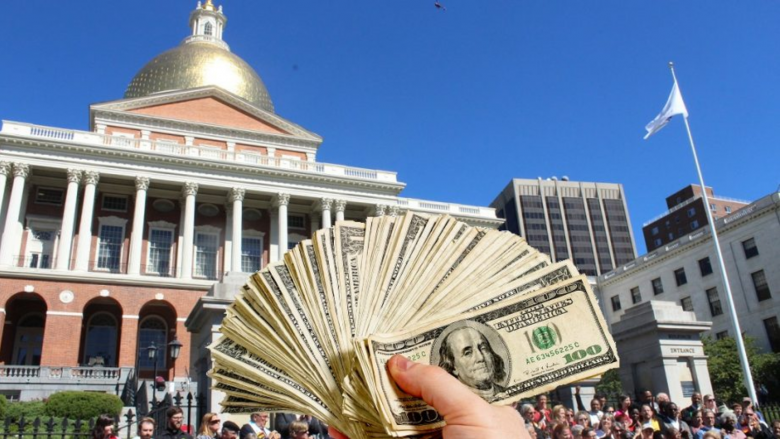Massachusetts in Poor Position to Pay Out Unemployment Compensation, Research Shows
By Tom Joyce | April 14, 2020, 17:14 EDT

The way Massachusetts is handing out unemployment benefits is not sustainable, recent analysis from The Tax Foundation states.
On April 9, Jared Walczak, the director of state tax policy for The Tax Foundation, a pro-growth, tax-skeptical think tank in Washington D.C., calculated how long every state could pay out unemployment benefits at the rate it is currently paying amid the coronavirus pandemic.
For states like Wyoming, South Dakota, and Utah, the answer is more than one year. For Massachusetts, however, it is far less.
Walczak calculated that Massachusetts could afford to pay out unemployment benefits at the current rate for only six weeks. Then, the state would have to start taking out federal loans which would have to be paid back with interest to keep the benefits coming.
That means Massachusetts is tied for the fourth-worst positioned state in terms of unemployment benefits spending. It also means Massachusetts is in the worst shape among the six New England states.
Massachusetts has the largest unemployment benefits in the nation, according to World Population Review. The Bay State allows workers to collect unemployment for a maximum of 30 weeks while collecting up to $742 per week. The average amount collected, however, according to Walczak is about $555 per week.
“The Commonwealth has always been extremely generous with its unemployment compensation program, with the highest average weekly benefit in the nation — almost 50 percent higher than the national average,” Walczak told New Boston Post in an email message. “Now, with the state benefit plus the additional $600 a week offered by the federal government during this crisis, unemployed individuals in Massachusetts will receive, on average, $1,155 a week, or the equivalent of $29 an hour using a typical 40-hour workweek.
“Although such generous benefits are no doubt appreciated, they also strain the system, and are one of the reasons why the trust fund’s reserves are so inadequate,” he added. “If the loans take years to pay off, which is quite plausible, in-state businesses will ultimately have to pay higher federal unemployment insurance taxes to compensate for Massachusetts being in arrears to the federal government.”
For many workers, the government benefits they are receiving are far larger than the salary they would be getting if they were working full-time right now.
In a statement last Friday, the Massachusetts Fiscal Alliance reacted to the Tax Foundation’s findings, voicing concerns over a system the alliance does not see as sustainable.
“National tax experts are also joining local tax experts with a warning for Massachusetts State House leaders. If the Governor, Senate President, and Speaker do not begin to rein in state spending to a realistic level and allow for businesses to reopen in some capacity, the safety net for our state’s unemployed will soon run out and put us into further debt on top of our already nation-leading debt per capita,” MassFiscal spokesman Paul Craney said in a written statement.
In a press conference on Thursday, April 9, Baker said that nearly 470,000 Massachusetts residents had filed for unemployment in three weeks.
“These numbers, obviously, are staggering, and we all know the story behind all of them is about more than just numbers,” Baker said. “Between every new claim is a story of economic disruption and hardship caused by the unprecedented impact of this virus. We all know the virus has caused people to lose their jobs, almost all cases through no fault of their own, and has created significant anxiety in households across the commonwealth and across the country.”
The press offices of the governor and of the Massachusetts Executive Office of Labor and Workforce Development could not be reached for comment.










